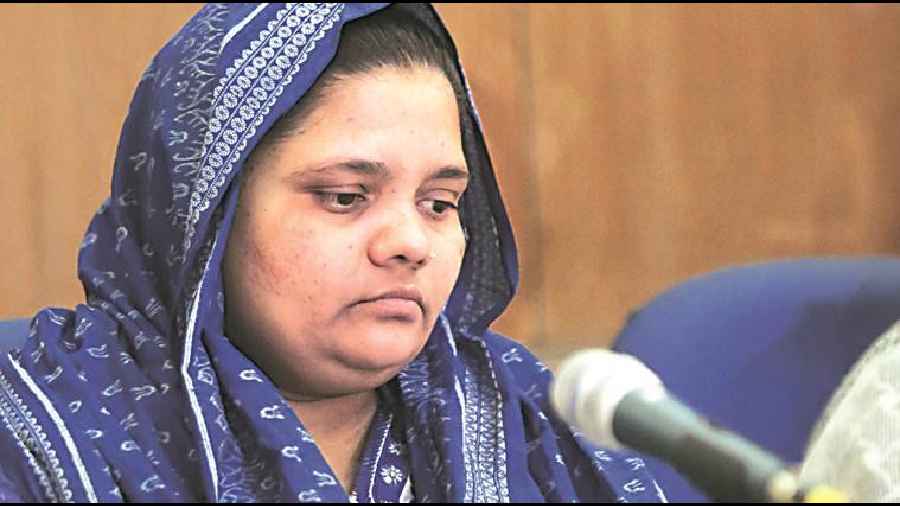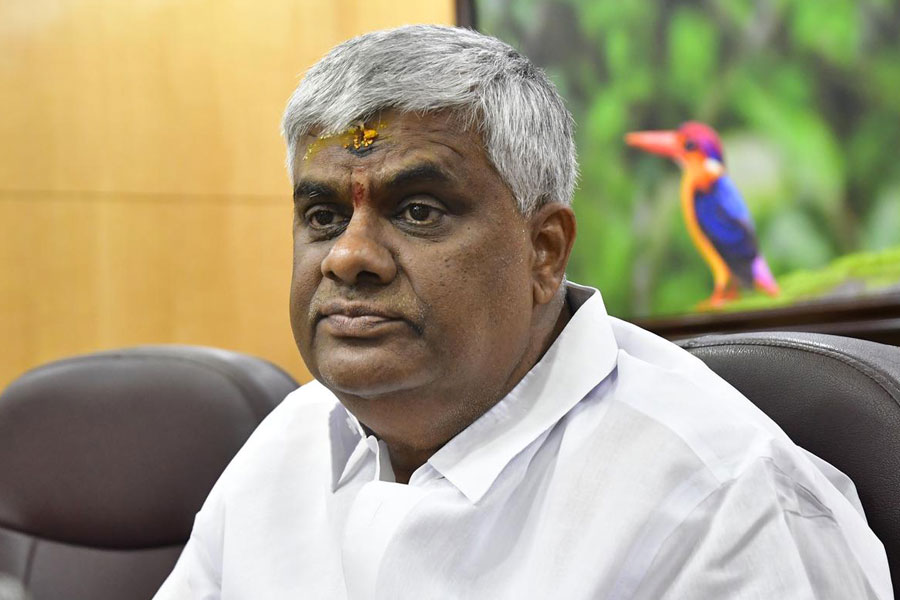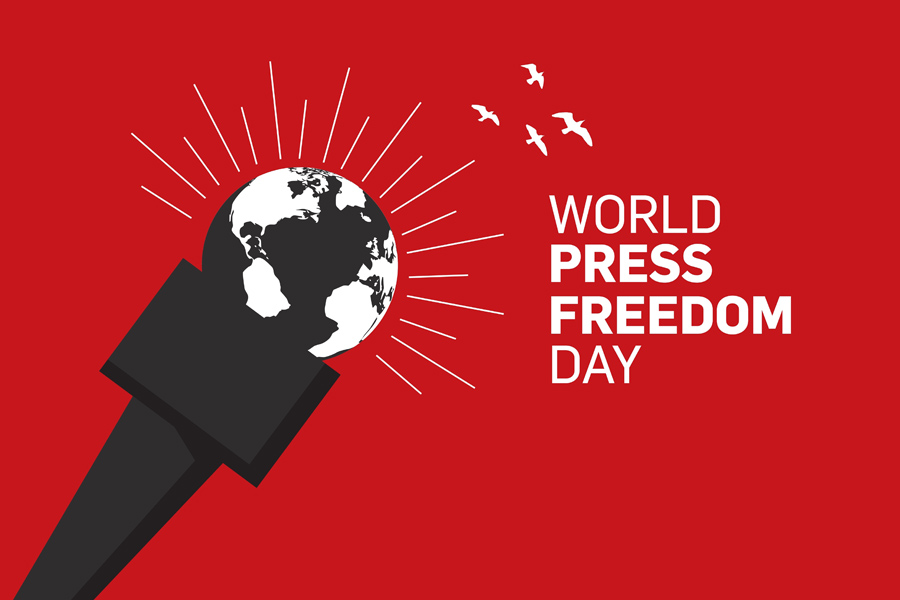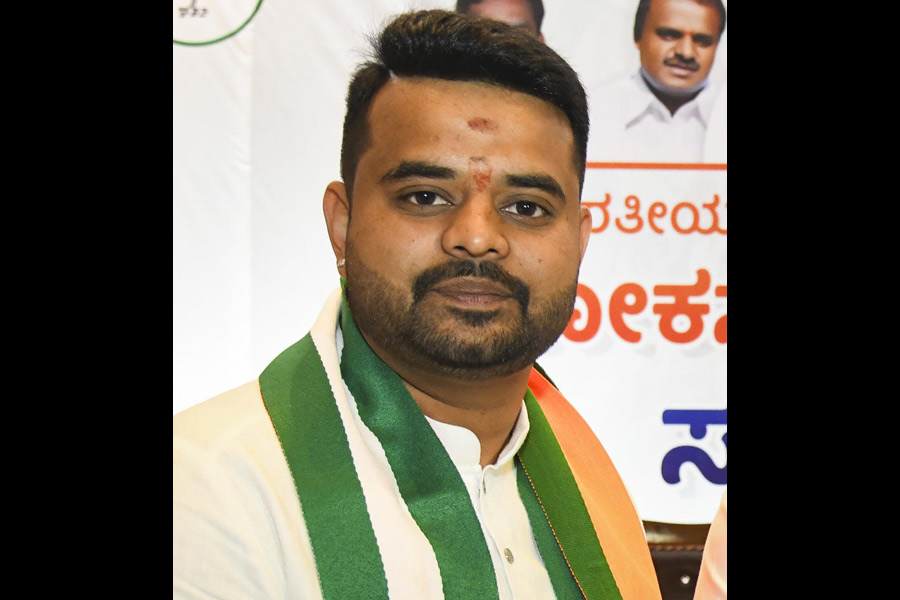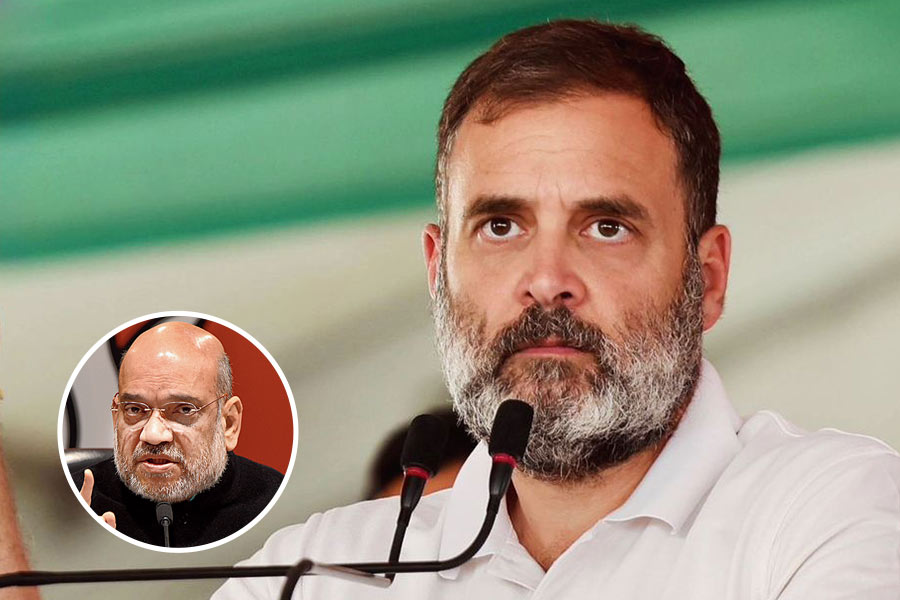The Supreme Court on Tuesday castigated the Gujarat government for releasing 11 life convicts in the Bilkis Bano case and warned it with contempt proceedings for failing to furnish, as directed on March 27, the files the state had considered before granting remission.
The bench said the state’s argument about remission being a statutory right after lengthy imprisonment amounted to comparing "apples with oranges", and that such decisions must take the "public interest" into account.
"A pregnant woman was gang-raped and several people were killed. You cannot compare the victim's case with standard Section 302 (penal provision for murder). Like you cannot compare apples with oranges," the bench of Justices K.M. Joseph and B.V. Nagarathna said.
"When remission is granted, it is not just a rights-based approach, other considerations must be seen…. When remission is considered in such heinous crime against the society at large, the power must be exercised by the State in public interest.”
Additional solicitor-general S.V. Raju, appearing for Gujarat, told the bench that the state would consider filing a review petition by Monday for recall of the court’s March 27 order. The court posted the next hearing to May 4.
Bilkis was gang-raped and seven of her family members were murdered during the 2002 Gujarat riots. The Gujarat government released the 11 life convicts on August 15 last year with the Centre’s concurrence, sparking an uproar.
“The question is, whether the state applied its mind and what material formed the basis of its decision, etc… that an order was passed in a matter which required the convicts to be in jail for rest of their natural life were released by an executive order,” Justice Joseph said.
“Today, it is this lady. Tomorrow, it can be you or me…. What happens to my brothers and sisters is definitely a matter of grave concern. There must be objective standards. If you don’t give us reasons, we will draw our own conclusions.”
Senior advocate Sidharth Luthra, appearing for some of the convicts, said they had already spent 15 years in jail and release was part of their statutory right.
“Mr Luthra, with your vast experience, please tell us how you can compare apples with oranges. How can you compare the murder of a single person with the massacre of multiple persons?” the bench said.
Parole maths
Justice Joseph, reading from his files, underlined that the convicts had earlier been given three to four years’ parole.
“More than 1,000 days of parole was granted to each of them. One of them got 1,500 days’ parole,” he told Luthra.
Luthra argued that the convicts had also spent over 15 years in custody, prompting Justice Joseph to shoot back: “How have they been in custody for 15 years when they were (for) more than 1,000 days on parole?”
‘Contempt’ rap
The bench slammed the Gujarat government for refusing to share the remission files on the ground that it intended to challenge the March 27 directive to produce them.
“What is the problem in showing us today? You are in contempt for not producing it. Why are you shying away? You did not file a review, we never stopped (you from doing it),” Justice Joseph said.
He added: “If the Union of India has concurred it does not mean you (Gujarat) do not have to individually apply your mind. No state can escape the contours of the law…. If you say you will not give us reasons or produce the files, we will have to draw our own conclusion.”
Justice Nagarathna said: “You will be in a better place if you show (the files).”
Delay tactic
Justice Nagarathna said the court was aware of the strategy of the accused to deliberately prolong the case.
“We are also conscious of the strategy that the matter may be dragged to at least December by the accused. They will say, ‘We have not been served with the copy’, this and that, and keep seeking four weeks’ time…” she said.
At the start of the day’s proceedings, Rishi Malhotra, counsel for one of the convicts, had sought adjournment to file a reply. But senior advocate Abhishek Manu Singhvi, appearing for the PIL petitioners, and advocate Shobha Gupta, appearing for Bilkis, opposed him.
Gujarat had granted the remission after the apex court bench of Justices Ajay Rastogi and Vikram Nath directed it on May 13 to consider a plea for release moved by one of the convicts.
Gujarat High Court had earlier ruled that the government of Maharashtra, where the trial had been held, alone had the power to consider remission.
Bilks moved two petitions, one of them a review petition challenging the apex court’s May 13 order. It was dismissed in December. The other is a writ petition against the remissions that is being heard now along with public interest pleas moved with the same demand by CPI leader Subhashini Ali and Trinamul MP Mahua Moitra.
On March 27, the apex court had issued notices to the Centre and the Gujarat government on the remissions, terming the offence “horrendous” and wondering whether the same “standards” had been applied to the hundreds of other jailed murderers.

